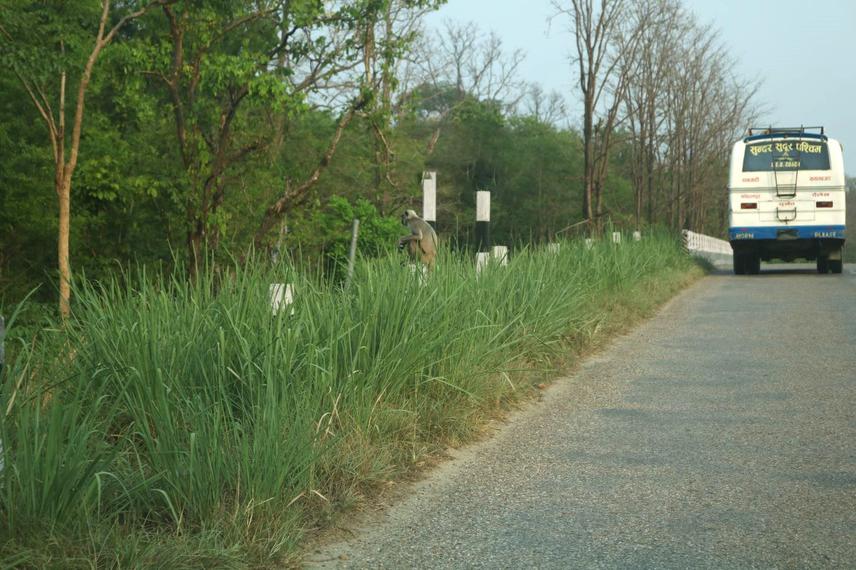News article featuring the project.
Manju Shree Thakur
Nepal, a developing country, is growing and undergoing significant infrastructure development, marked by the expansion of road network. The major highway, East-West Highway, of Nepal passes through several National Parks and Buffer Zones, including Banke National Park in the western regions. The impact of the highway has resulted in the fragmentation of forests, disrupting animal movement routes and increasing the of wildlife roadkill. Unfortunately, Banke National Park being in the crossroads, has experienced the highest rate of wildlife roadkill in Nepal. This has created a significant friction between growing infrastructure and the conservation of biodiversity and natural habitat.

Roads connect people but wildlife also shares these paths—drive with caution and save lives. © Manju Shree Thakur.
Recognizing the urgency of addressing this issue and realizing the need for more action on the ground my will primarily focus in sensitizing the motorists about the importance of wildlife conservation and adoption of responsible driving practices. Activities to sensitize local communities, regarding highway safety and wildlife conservation, will be carried out in the selected settlements along the highway of Banke National Park.
Similarly, previously identified hotspots from past works and spatio-temporal data, need specific validation to implement management strategies, paving the way for a more sustainable coexistence between humans, development, and nature. Moreover, in cooperation with national park authorities, the project will contribute installation of highway safety information boards and strengthening data collection system-all targeted towards enhancing highway safety and mitigating wildlife roadkill.
Header: A snapshot where infrastructures meet natural habitat and wildlife. © Manju Shree Thaku.